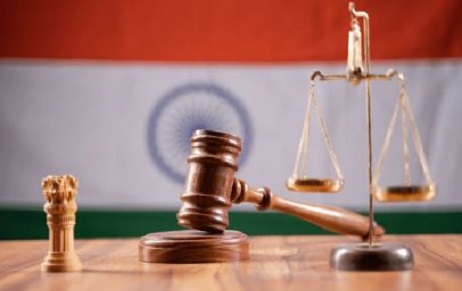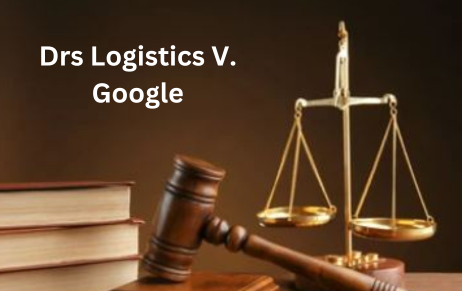ABSTRACT The project employs doctrinal research methods, i.e. secondary research which involves writing on basis…
Bigtree Entertainment Pvt. Ltd. vs. Brain Seed Sportainment Pvt. Ltd. & Anr
“A brainy person does not abuse copyright; instead he respects it and upholds it.” – Maximillian Degeneres.
Introduction
With the rise in the number of businesses using the global internet portal for running their businesses and with the increase in the number of start-ups in the current economic scenario, we come across many new issues that have to be dealt with in-depth and have to be decided accordingly keeping in mind the far-fetched effect it would have on the domain of intellectual property right. One such latest instance was a question posed before the High Court of Delhi when it to deal with the process to determine whether a phrase is invented or descriptive. Through this article, the author would be discussing one of the latest judgments pronounced by the High Court of Delhi (hereafter, the “Court”)in the matter of Bigtree Entertainment Pvt. Ltd. vs. Brain Seed Sportainment Pvt. Ltd. &Anr.
Brief Facts
Brief facts of the case are that Bigtree Entertainment Pvt. Ltd. (hereafter, the “Plaintiff”) operates an online ticketing platform for booking tickets for movies and entertainment related events through its web portal popularly known as “BookMyShow”, for which Plaintiff has a secured registration of the marks and logos under class 41 (education, entertainment, and training) and class 42 (technology and software services) as “BookMyShow”. Plaintiff had at present applied for the registration of the mark “bookmy”, which does not separately possess any trademarks of over that terms.
However, the case of the Plaintiff was that the defendant in the present case, Brain Seed Sportainment Pvt. Ltd. (hereafter, the “Defendant”) operates a web portal, namely, ‘www.bookmyshow.com’, an online portal for booking sporting events, venues and other sporting facilities. The suit was filed by Plaintiff claiming an infringing off and passing off the Plaintiff’s registered trademark by Defendant of using the term “bookmy” in the Defendant’s mark which is deceptively similar to its own, and that it is apprehended by Plaintiff that the Defendant would mislead the consumers into associating itself with the Plaintiff’s goodwill and mass connection that the Plaintiff’s trademark has with its consumers. In particular, Plaintiff claimed that the usage of the term “bookmy” was just an interplay of words from Plaintiff’s registered trademark of “BookMyShow” which is a distinctive trademark. The main issue that the Court was faced with was that the Plaintiff’s goodwill over its mark carried over to a part to a part of the mark and thus the mark of “BookMyShow” would pass on to the terms book and my as well and thus their mark had acquired a secondary meaning which deserves to protected in order to protect their goodwill and media connect with the consumers.
The defendants contested the contentions of Plaintiff on two counts. Firstly, it challenged the merit of the Plaintiff’s claim over concealment of certain facts relevant to the present case before the Court, and secondly, Defendant’s claimed that the words “bookmy” were merely descriptive in nature and it had not acquired any distinctness as claimed by the Plaintiff. Additionally, Defendant argued that Plaintiff’s claim over the mark of “bookmy” was distinctiveness were indeed flawed by the aspect that there were various other websites operating in similar fields that have been being used prior to or subsequent to the Plaintiff’s web portal coming into existence.
Defendant’s further claimed that the prefix “bookmy” is not an invented phrase meriting any legal protection, but a descriptive one that is common to a particular business format being run in a particular field. For instance, in the present case, both the parties to the suit are involved in the business of running a web portal of booking tickets, as in the case of Plaintiff or any sporting event, as in the case of Defendant. Thus, the Plaintiff’s claim that their trademark of “BookMyShow” would imply that a part of the mark that is “book” and “my” would also imply a relation to their mark, is flawed on the proposition that no other web portal which deals with the aspect of acting as an intermediary in booking tickets or events in any other field cannot use the term “book” and “my”, which would be necessary to imply the format of business being run by them, hence resulting to the conclusion that the Plaintiff is not the exclusive user and adopter of the mark “book” and “my” or “book” and “my” and “show”.
Issues
The issue that the Court had to look into by Court was:
Whether a phrase is a registered trademark is descriptive or invented one for its part trademark also would result in a violation of the usage of any part thereof or not.
Analysis
The single-judge bench of the Court headed by Hon’ble Justice Mukta Gupta dismissed an interim application for grant of an injunction under Order XXXIX Rule 1 & 2 of the Code of Civil Procedure, 1908 on an application filed by Plaintiff against Defendant, against the use of the prefix of “bookmy” or the mark of “bookmySPORTS”.
The judgment of the Court delivered on December 13, 2017, dismissed the application on referring to numerous judgment on the same subject matter before the Hon’ble Supreme Court of India and other High Courts as well in the past.
The judgment related the present matter in light with the question of whether a phrase is descriptive or invented was considered at great lengths by the Supreme Court in the case of J.K. Kapoor vs. Micronix India, where it was held that a word which is descriptive of the industry or market in which the concerned parties operates cannot be deemed to be invented as it would restrict the chance of other new participants to be able to relate their product with the industry they wish to pursue their business. Thus providing an undue advantage to the predecessor who has registered any such trademark over an industry-specific mark thus refusing other participants to be able to use any part of the mark for their own identification of their product. The Court stated that a brand name cannot claim exclusivity or monopoly over a term that is descriptive of any activity in an industry.
The Court also referred to another decision of the Supreme Court in Reliance Industries Ltd v/s Reliance Polycrete Ltd, the issue that was raised in this matter was whether goodwill attached to a complete trademark carries over to a part of that trademark. It was held that the existence of any industry using the term ‘Reliance’ would only make a person conclude it was being referred to reliance Industries’ alone, the Supreme Court held that reliance Industries Ltd. could not claim the monopoly over the use of the term ‘Reliance’ exclusively as it was not an invented terminology but a generic term which can be used for other usages as well by other participants in the market for propagating a message across to the consumers for a better understanding of what their product is about and what the product is being sold to the consumers.
Referring to the above-mentioned judgments, Justice Mukta Guptain her judgment in paragraph 16 of the judgment held:
“In the present case, the defendant has placed on record examples of numerous other companies that operate with the same domain prefix, and the plaintiff has yet to put on record any evidence suggesting that the prefix “BOOKMY” is only associated in the minds of the public with the plaintiff’s business and nobody else, thus has acquired a secondary meaning and distinctiveness. Considering the fact that the use of the words “BOOKMY” is descriptive in nature and the plaintiff’s trademark “BOOKMYSHOW” has not acquired a distinctive meaning, no case for grant of the injunction pending the hearing of the suit is made out.”
The Court while dismissing the application revered to another case decided by the High Court of Delhi in the matter of P.P. Jewellers vs. P.P. Buildwell Pvt. Ltd., wherein a similar contention was raised by the plaintiff that the usage of the term “P.P.” was an exclusive trademark of the plaintiff any other person using it would affect its goodwill and would thus result in the violation of its rights protected under the trademark legislations. Hence the usage of the terminology of “P.P.” is not an invented term but just a generic one over which monopoly of one person cannot be safeguarded to prevent any harm to its goodwill.
Ratio Dicidendi
Thus, the Court while laying the ratio, also laid down the precedent that the usage of the term “bookmy” is vast and does nowhere give the impression that it is created but one of a descriptive nature describing the type of business being conducted and that the plaintiff’s claim that the use of the prefix of “bookmy” is not only associated in the minds of the public with that of the plaintiff’s business and nobody else, thus has not acquired a secondary meaning and distinctiveness.
Conclusion
With the rise in the current scenario of the newly evolved businesses, the rise in mass reach over a media like that of the internet, a trademark violation can often be contended by certain businesses as in the present case. The Court in the past has already dealt with these kinds of issues and is also dealing with these issues at present, the fate of such matters might end in the same manner as is being dealt with in the current scenario wherein the Media law and the trademark laws are interjecting with each other and the court has to decide whether a certain trademark can be given exclusivity in times where a single word or even a letter can be industry-specific.
Thus to conclude, media is a very sensitive issue that is to be looked into very cautiously and to decide if any usage of any trademark or any part thereof could result in damage to the goodwill of the trademark owner. The Court in the present matter before us dealt with it very meticulously to arrive at the conclusion that any part of a registered trademark cannot be said to be part of the complete trademark. In the opinion, the judgment of the Court is indeed on the right track and lays down that very important precedent for future references by the judiciary while deciding such matters wherein such contentions can be raised for relating a part of the trademark with the complete trademark which might result in a monopoly of a single player in the industry thus violating the very essence of Article 19(1)(g) of the Constitution of India and preventing any person to conduct any business by using any part of registered trademark for identifying their product with the arena in which their business offers product(s).
Author: Ms. Swatilekha Chakraborty, Intern at Khurana & Khurana, Advocates and IP Attorneys. Can be reached at [email protected].



